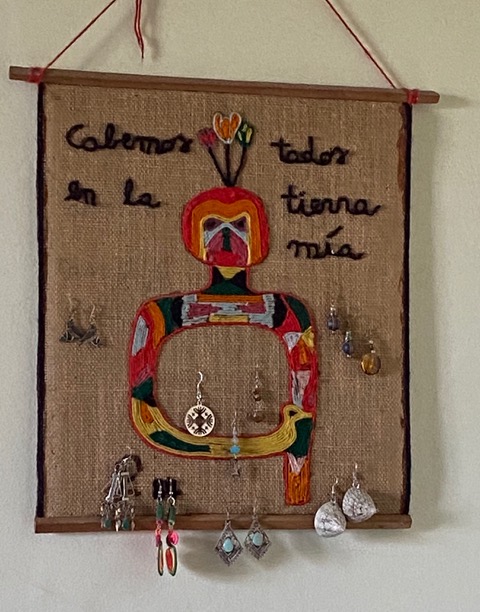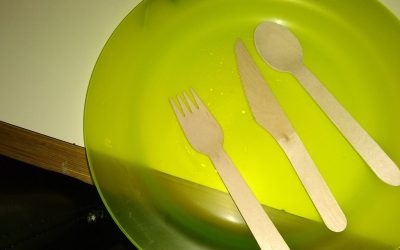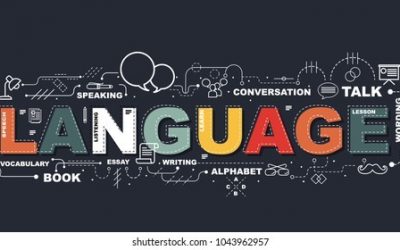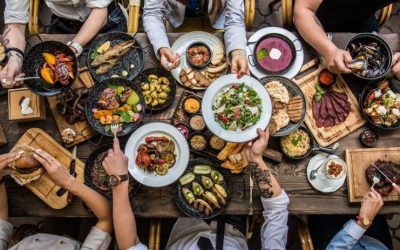As part of the 2022 International Women’s Day, we celebrate the life and work of Consuelo Rivera Fuentes, a Chilean-British lesbian feminist writer, sociologist, academic, publisher, mother, partner and a life-long supporter of equality, diversity and inclusivity.
The theme for this year’s International Women’s Day is #BreakTheBias. This campaign aims to achieve a world free of bias, stereotypes and discrimination and a world where difference is valued and celebrated. It may seem like a Utopian dream, but there are a multitude of women working together to achieve these goals. And one of the more formidable women leading the pack is Consuelo Rivera Fuentes. Consuelo Rivera Fuentes is a Chilean-British lesbian feminist writer, sociologist, academic, publisher, mother, and partner to Lynda. She is the founder and CEO of Victorina Press, giving voice to authors who share her passion for equality, diversity and inclusivity.
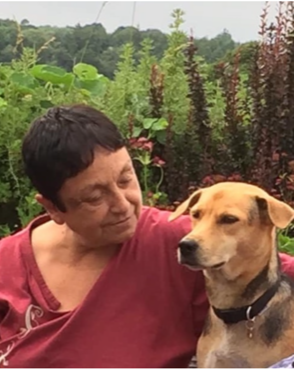
Consuelo exudes a beautiful air of calmness and gentleness, underscored by a fierce determination to defend those who face discrimination, whether from religion, gender, race, sexual orientation, or politically. TogetherintheUK (TGIUK) were delighted to speak with Consuelo to discover how she has spent her life breaking the bias.
#BreakTheBias – Domestic Violence
As a young child, Consuelo first faced gender-based discrimination when she witnessed her father physically abusing her mother. While she loved her father, she recognised the physical, psychological, and emotional power men can have over women and the authority that so many men assume. She recalls that these incidents taught her at an early age that it was essential to be strong and to stand up to discrimination and defy anybody who violates another’s human rights.
#BreakTheBias – Political Suppression
“Sometimes you fight bias with words and actions, at other times silence in the strongest weapon…” Consuelo
And she found that strength crucial when as a political activist in Chile fighting for human rights against the regime of Pinochet, she was arrested, imprisoned, and tortured. During that period, Consuelo faced a slew of biases, from being an activist, a lesbian and ironically from being educated and “not knowing better” than to resist the regime. On this occasion, her defiance took the form of silence. Despite horrific torture, Consuelo was determined not to give up the names of fellow activists and taught herself to ‘forget names’. “Sometimes you fight bias with words or actions; other times silence is the strongest weapon, and for me, it became a mental battle rather than a physical revolt.” Consuelo’s approach underscores the IWD belief that collectively we can break the biases, but equally important is how women as individuals approach situations and adapt to find a position of strength and power.
Consuelo has written many academic papers related to torture and her experiences and if you would like to read more, she has guided us to one paper, Talking With/In Pain. You should be aware that this is a harrowing read and may contain language and content that some readers might find upsetting.
#BreakTheBias – Homophobia
Numbers that count when it comes to criminalising homosexuality
Perhaps one of the most emotional milestones in Consuelo’s life and the most impactful was when she came out to her teenage son. Like many women of that time, Consuelo used marriage as a means to leave her family home and, as she recounts, perhaps subconsciously a way to suppress her lesbian feelings. At that time, Consuelo had not completely acknowledged her lesbianism, but laughing, she recalls, “Once I realised my true self, I understood why I kept falling in love with my female teachers in school – it all made sense“. Homosexuality bias was prevalent in Chile, with Pinochet’s regime escalating stigmatisation and criminalisation of the LGBT community, so coming out was a significant risk. Angered by Consuelo’s honesty, her husband betrayed her to her son. However, having brought her son up to value diversity and embrace the ‘marginalised’, he lovingly supported her. This gave her the strength to continue being her true self in an environment which was not open to homosexuality. As the mother of two adult sons, one living in Chile and one living in the UK, Consuelo proudly acknowledges both her sons have always been her most incredible supporters. Consuelo broke the prevalent bias against her sexual orientation by not allowing anyone to undermine her and telling the people who mattered to her first. Her advice to members of the LGBTQ+ community is to control the narrative and not let other people demoralise you.
#BreakTheBias – Racism
Understanding why people discriminate is complex and ultimately involves the study of social attitudes and stereotypes about certain groups. Although negative attitudes and stereotypes do not always translate into discriminatory behaviours, they are likely to facilitate discrimination. Migrants and Discrimination in the UK
Consuelo came to the UK in 1992 as a mature student and to live with her then-girlfriend. She was saddened to face the same bias that migrants continue to meet in the UK and recounts that the discrimination though subtle, was consistent, comprising snide comments about her accent, her English-speaking skills (which were excellent), and her writing. “It was disappointing that such insidious racism was prevalent at an educational institution and from supposedly learned people. It showed me that discrimination is implicit at all levels of society”.
#BreakTheBias – Stereotyping
Stereotype: a fixed idea many people have about a thing or a group that may often be untrue or only partly true.
As a lesbian mother of two children, Consuelo has faced many forms of bias. Despite their increasing numbers, “out’ lesbian mothers are often challenged and are expected to justify both their sexual orientation and their family’s legitimacy. “Far too many people react with scepticism, questioning my sexuality and then daring to undermine my maternal rights with questions as to why I have children if I am gay!”. Consuelo dealt with such bias not by defending or excusing herself but by defiance. She used words to break this bias by calling her accusers out or writing poetry to share her feelings and outrage.
#BreakTheBias – By The Power of the Pen
“Speech has power. Words do not fade. What starts out as a sound ends in a deed.” -Abraham Joshua Herschel
As a teacher, sociologist, feminist scholar and creative writer, Consuelo has spent her life creating a lexicon of diversity and inclusivity. She has used, and continues to use poetry as a means to fight biases. One such poem, A She River is Born, reflects the power of women coming together to rebel against the patriarchy and is an incredible piece.
But Consuelo is not content in just writing her own material, she is committed to providing a platform for others to share their work and to fight bias through words and actions. As you might expect, for Consuelo, ageism is just another barrier she has broken, so having reached the expected age for retirement, rather than put her feet up she established a small but successful independent publishing company, Support Us. True to form, bibliodiversity is the underlying premise of VP. By definition, bibliodiversity is the cultural diversity applied to the writing and publishing world. For Consuelo, bibliodiversity celebrates a spectrum of authors who act as a platform for otherwise dismissed voices through diverse themes, genres, topics, and forms. “I want their voices and creativity to stand out against the traditional publishing world in which roots are not important and exclusion, dominance and power run rampant”.
#BreakTheBias – Understanding Diversity
“Diversity” comes from the Latin for “facing both ways.”
The word diversity can evoke extreme reactions often linked to differences in race, culture, religion, mental or physical abilities, heritage, age, gender, sexual orientation, gender identity and other characteristics. Consuelo has a much more straightforward but realistic explanation of why we should embrace diversity. According to her, however or whoever first created the world it came with an ecosystem where a wide variety of plants, animals, and other organisms worked together to form life. If Mother Nature deems diversity the source of life, how can so many people resist diversity and consider that it negatively impacts their lives? According to Consuelo, it is not a case of either/or, instead we need to find a balance in our approach to each other, whatever our race, religion, skin colour, sexual preference or identity. “Tolerance and openness are at the core of breaking biases. We do not necessarily have to agree with different beliefs, lifestyles, or cultures, but we should tolerate them and open ourselves up to learning more about them.” As an educator, Consuelo stresses the value of being open-minded and educating our children not to identify differences but to find points of connection.
#BreakTheBias – Being a visionary
“Women are the largest untapped reservoir of talent in the world.” Hillary Clinton
True to form, when Consuelo, considered a visionary in taking tangible steps to break the biases, particularly facing women, she thought outside the box, naming the Chilean president-elect, Gabriel Boric, as an example. Boric has named a progressive cabinet with a ministerial team dominated by women. The first time in the Americas. But the critical difference is that Boric has not named them as a token symbol of equality rather, he has made considered and relevant appointments. With fourteen women and ten men, the cabinet is diverse by age, gender, sexuality, education and social background. Most notable is the appointment of two openly LGBTQ+ members and the appointment of a woman as the Minister of Interior, possibly the most influential and powerful position after Boric. As Consuelo explains, Boric’s cabinet is sending a message that this new government will lead Chile into a culture of diversity and inclusion. “If we are to break the biases that so many of us face, we need men and women to stand together, to break glass ceilings that restrict us on the bases of gender, sexuality, religion, or race. This change must start from within ourselves. I encourage women not to undervalue themselves or other women. Don’t be afraid of difference, rather embrace it, learn from it, connect to it, and always remember to challenge discrimination and offer a helping hand to other women or those who are marginalised. Every small action matters when it comes to #BreaktheBias”.
TogetherintheUK is delighted to be working with Consuelo and Victorina Press on an anthology of migrant stories and poems titled, Hear Our Stories. The book represents the deeply personal and heartfelt emotions and experiences endured by our migrant authors on their journey to UK and while waiting “to be granted”. The anthology will be published in 2023.
About International Women’s Day
International Women’s Day is a global day celebrating the social, economic, cultural and political achievements of women. The day also marks a call to action for accelerating gender parity. Significant activity is witnessed worldwide as groups come together to celebrate women’s achievements or rally for women’s equality.
Marked annually on March 8th, International Women’s Day (IWD) is one of the most important days of the year to:
- celebrate women’s achievements
- raise awareness about women’s equality
- lobby for accelerated gender parity
- fundraise for female-focused charities.

